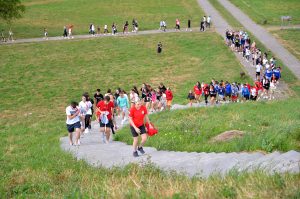Located in the Balkan Peninsula, with Sarajevo as its capital, Bosnia - Herzegovina has a population of 3.2 million [1] and is ranked at the 80thosition in the 2022 Human Development Index, with a value of 0.779 – a country categorized as highly developed.
Bosnia - Herzegovina is a "partially" independent State, under international supervision in the framework of the Dayton Peace Agreements (1995) [2] that put and end to the war in the country. More than 100,000 people were killed and about two million displaced during a multi-year conflict that left infrastructures and economy in ruins.
At political-administrative level, the country includes two different entities, Federation of Bosnia - Herzegovina and Republika Srpska, and Brcko district, which is ruled by its own local government. The executive body at state level is the Council of Ministers, which has 9 ministries to coordinate policies and a rotating tripartite presidency. In July 2015, the Council of Ministers of BiH, the Government of Republika Srpska (RS) and the Government of the Federation of Bosnia - Herzegovina (FBiH) adopted a joint reform programme supported by a broad national consensus.
The country is a member of the United Nations, the OSCE and the Council of Europe.
Accession process – basic timeline [3]
June 2008 – Signed the Stabilization and Association Agreement (SAA) with the European Union, pending for the implementation of a key ruling of the European Court of Human Rights
June 2015 - Stabilisation and Association Agreement (SAA) enters into force
February 2016 – Application for EU membership submitted
May 2019 – EU Commission presents 14 conditions to start negotiations, including ensuring the Stabilisation and Association Parliamentary Committee (SAPC) full functioning
December 2022 – Candidate country status granted, following the same recognition given to Ukraine and Moldova
 The Italian Development Cooperation has been operating in Bosnia - Herzegovina since 1992, carrying out emergency interventions for health and logistical assistance to refugees and the besieged population in collaboration with UN agencies.
The Italian Development Cooperation has been operating in Bosnia - Herzegovina since 1992, carrying out emergency interventions for health and logistical assistance to refugees and the besieged population in collaboration with UN agencies.
The political-institutional framework resulting from Dayton agreements allowed a joint effort with international community, strengthening actions for institutional support and economic development. Since 1995, Italian Development Cooperation focused on reconstruction and development in order to foster bilateral economic relations, opening the Local Technical Unit (UTL) in Sarajevo in 1997.
In line with the aforementioned strategic and programmatic documents, AICS initiatives in Bosnia - Herzegovina focus to different areas of intervention including:
Agriculture and rural development (plant health, organic farming and biodiversity)
Environment and sustainable tourism (territorial development, natural parks)
Rule of Law and Good Governance (Reconciliation, Judiciary, Civil Defence)
Cultural heritage, human rights and migration
[1] For a comprehensive overview of data: Bosnia and Herzegovina | Data (worldbank.org)
[2] Dayton Peace Agreement | OSCE
[3] Additional info: Bosnia and Herzegovina - European Commission (europa.eu)
